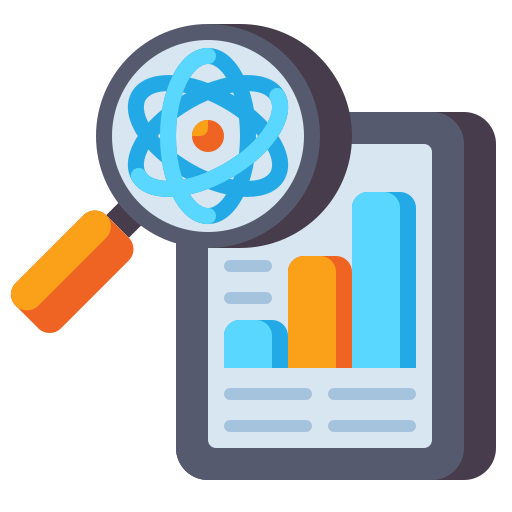In the ever-evolving digital age, one profession has consistently risen in value—data science. Whether it’s startups, multinational corporations, or even government agencies, organizations across the globe are scrambling to hire skilled data professionals. But what’s catching everyone’s attention lately isn’t just the demand—it’s the significant hike in salaries being offered to data science roles.
Understanding the Data Science Boom
The explosion of data in the last decade has been unprecedented. From online transactions and IoT sensors to social media activity and business processes, the amount of information generated every second is staggering. But data alone is meaningless unless interpreted and used effectively—and that’s where data scientists come in.
Data scientists extract value from vast datasets, solve business challenges using analytics and machine learning, and help organizations make data-driven decisions. Their unique combination of skills—programming, statistics, domain knowledge, and critical thinking—makes them incredibly valuable.

Why Salaries in Data Science Are Rising Rapidly
Several factors are contributing to the hike in data science salaries:
1. High Demand, Low Supply
Despite a surge in educational programs and bootcamps, the industry still faces a shortage of truly job-ready data scientists. This talent gap drives companies to offer higher compensation to attract and retain skilled professionals.
2. Impact on Business Outcomes
Data scientists directly influence business revenue through predictions, optimizations, and insights. Their work often leads to improved efficiency, better customer retention, cost savings, and strategic growth—making them a core part of decision-making teams.
3. Cross-Industry Relevance
Data science isn’t confined to one sector. Finance, healthcare, logistics, e-commerce, manufacturing, and even sports rely heavily on data insights. This wide applicability ensures that job openings (and salary competition) are present across industries.
4. Remote Work and Global Opportunities
The rise of remote work has widened the playing field. Now, data scientists in one country can be hired by companies abroad, often with global-level pay scales. This has raised salary benchmarks even in emerging markets.
Salary Trends: Entry-Level to Experienced
Here’s a general overview of how salaries in data science are shaping up (figures may vary by region and company):
- Entry-Level (0–2 years): ₹5 – ₹10 LPA
- Mid-Level (2–5 years): ₹10 – ₹20 LPA
- Senior-Level (5+ years): ₹20 – ₹35+ LPA
- Specialized Roles (ML Engineers, AI Architects): ₹30 – ₹60+ LPA
In regions like the US or Western Europe, these figures are even higher, and startups in niche AI fields sometimes offer equity alongside competitive salaries.
Hot Roles Driving the Pay Hike
Some of the most in-demand (and high-paying) roles in data science include:
- Machine Learning Engineer
- AI Research Scientist
- Data Architect
- Data Engineering Lead
- NLP (Natural Language Processing) Specialist
- MLOps Engineer
These roles often require a mix of software engineering, research, and business problem-solving—making them both complex and rewarding.
Skills That Attract Higher Packages
If you’re aiming for a lucrative role in data science, these skills are consistently associated with higher pay:
- Advanced Python/R programming
- Cloud platforms (AWS, Azure, GCP)
- Big Data tools (Spark, Hadoop)
- Deep learning frameworks (TensorFlow, PyTorch)
- Model deployment & MLOps tools
- Domain knowledge in fields like finance, health, or logistics
- Strong communication and visualization skills
Upskilling in these areas can significantly enhance your job profile and salary potential.
How to Position Yourself for Better Opportunities
If you’re a beginner or a working professional looking to transition into data science, here are actionable tips to tap into this salary growth:
- Build Real Projects: Create a portfolio of data analysis or machine learning projects using real datasets.
- Participate in Competitions: Platforms like Kaggle or Hackathons showcase your skills and build credibility.
- Certifications and Courses: Choose reputable sources for structured learning but focus more on applying your knowledge.
- Network and Learn from Peers: LinkedIn, GitHub, and online communities can help you discover opportunities and stay updated.
- Practice Interview Skills: Technical interviews often include coding, case studies, and business problem-solving—preparation is key.
Conclusion: A Career on the Rise
The data science job hike isn’t a temporary bubble—it’s the result of a fundamental shift in how businesses operate. With digital transformation now a priority for every organization, the demand for data-savvy professionals will only grow stronger.
Whether you’re just starting or already in the tech space, now is the perfect time to ride the wave. Equip yourself with the right skills, stay updated with trends, and step confidently into a field where knowledge truly pays off—literally.
Important Link





